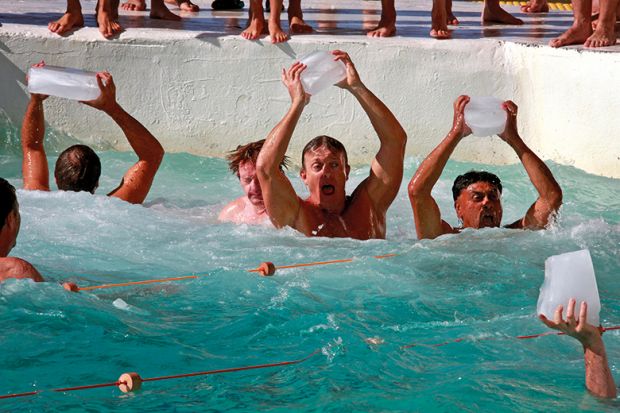Australia’s freezing of teaching grants has sent more chills through the university sector, contributing to job cuts and course cancellations from Cairns to Canberra.
James Cook University in northern Queensland has said that the mid-year intake will be the last opportunity for students to sign up for face-to-face undergraduate psychology, sports and exercise science degrees at its Cairns campus.
The university will also discontinue its master of economics programme, downgrade its creative arts and media degree to arts major status and transform a master of business administration programme into an online-only offering.
In a statement, James Cook said that the cuts were part of a “change plan” to help the university refresh its curriculum, attract new students and ward off financial pressures triggered in part by “reduced Commonwealth funding” and a “highly volatile public policy environment”.
Meanwhile, the University of Canberra has jettisoned 95 staff and is laying the groundwork for course adjustments next year, changes partly prompted by the government’s funding freeze.
A spokesman said that the “voluntary separation programme”, which was launched in February and is expected to save Canberra about A$12.8 million (£7.2 million) from next year, would help to “inoculate” the university against the funding freeze.
The freeze, revealed days before Christmas, in effect ended Australia’s uncapped system of university funding. It is expected to cost the University of Canberra A$17 million and James Cook A$29 million between now and 2021.
The funding change was revealed so late in the 2018 admissions cycle that most universities elected to proceed as they had planned, deferring any curriculum changes until next year.
But the multi-campus Australian Catholic University reacted immediately, cancelling admissions to at least 30 courses in changes that also affected some continuing students. The Australian National University discontinued its diploma of languages programme, blaming the funding freeze.
Last month, the University of Tasmania’s vice-chancellor, Rufus Black, told the ABC that the freeze, which is projected to cost his institution A$178 million over four years, could prevent his institution from accepting enrolments from mainland Australia.
However, a Tasmania spokesman said that it had not been necessary to do that, partly because the government had granted the university an extra A$41 million to fund 1,500 sub-bachelor places.
James Cook’s provost, Chris Cocklin, said that the changes at his institution had not been triggered solely by the funding freeze. “But there is no question that the capping is an encumbrance on the university – it constrains the ability to grow,” he said.
Professor Cocklin said that some of the axed courses might have been terminated anyway because they had not proved popular with students. But the funding freeze had “sharpened the resolve” of the university to abandon courses experiencing soft demand – particularly as the government had flagged funding cuts months earlier.
The provost said that he had not been surprised when the government enforced savings by axeing the uncapped university system. “It achieved what they wanted to achieve, and it made the universities look like the bad guys,” Professor Cocklin said.
He said that Queensland institutions were preparing for a further hit in 2020, when a dip in school-leaver numbers – the result of a historical change in school admission age – is expected to temporarily slash the university intake.




